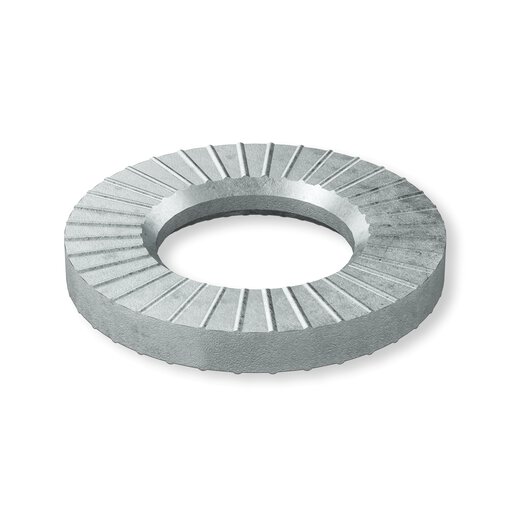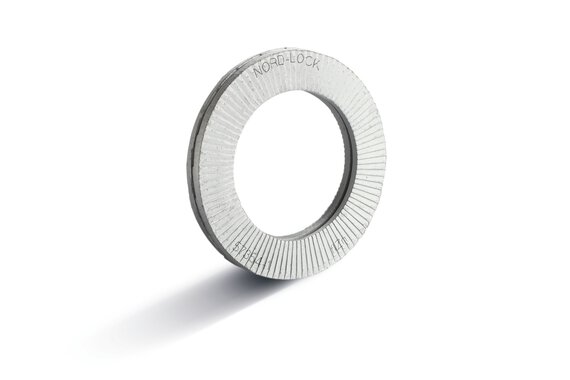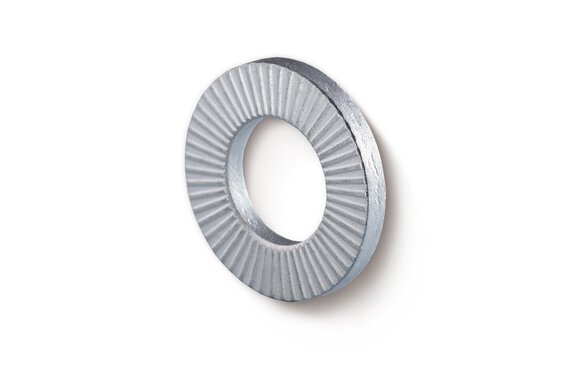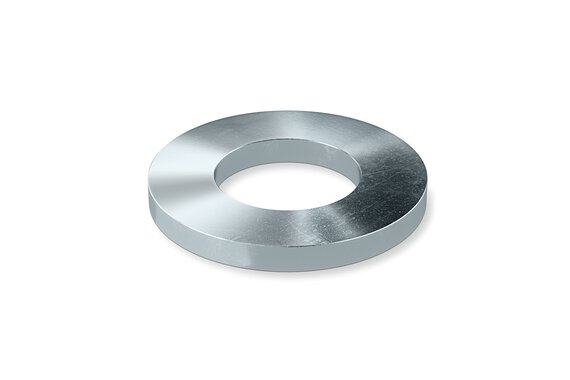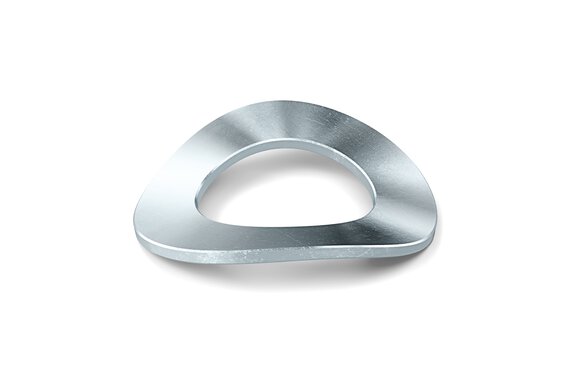Locking washers are retaining elements shaped like a cup spring and are ribbed on both sides. The counter-toothing bites into the mating face, creating a reliable form fit. Depending on application, in addition to maintaining pre-tensioning force, it is also necessary to consider securing the connection against unscrewing.
Standards
- B 53070
